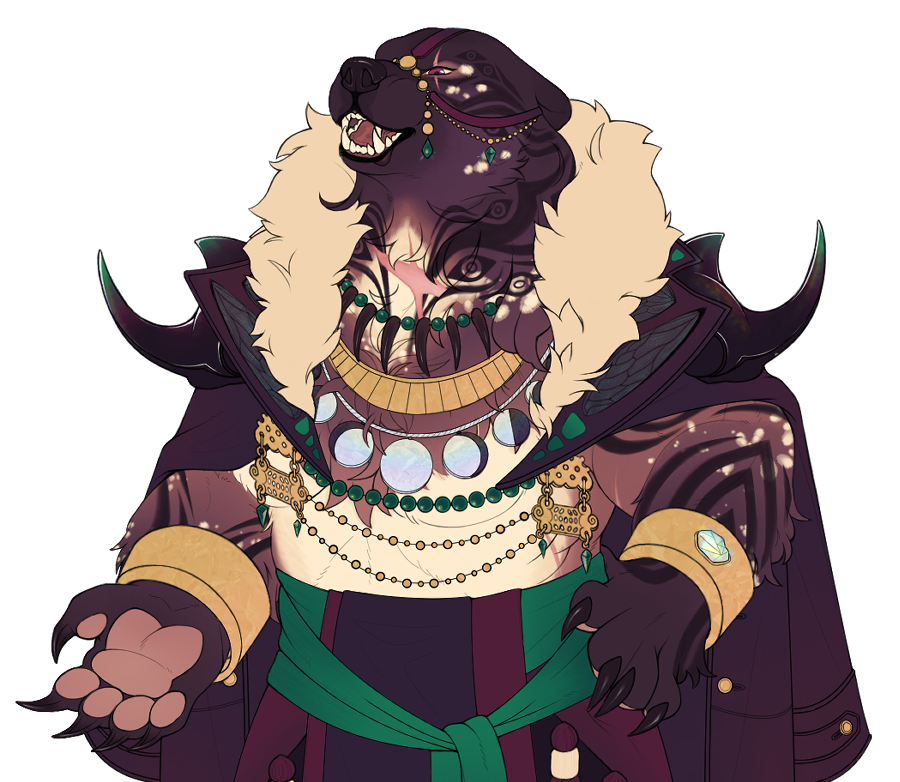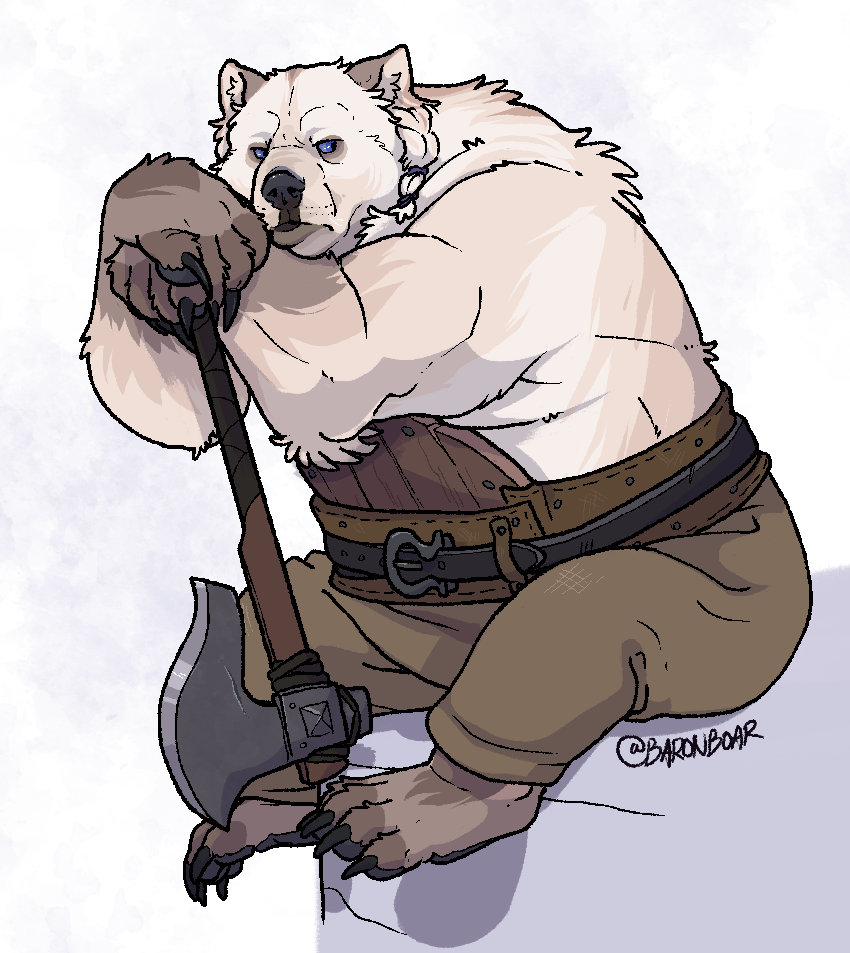Bjorthn
Known as the Ursine to the Panthera and the Brassili to the Gilter, these carnivores have massive crushing claws and towering seven foot tall bodies rife with muscle. As facultative bipeds they can switch between walking as a biped to running at full pelt as a quadruped with ease, making them swift, deadly hunters and skilled warriors. Their fur is regarded as greasy by other folk, but this oil helps them resist the cold by preventing melted snow and ice from soaking into their pelt and weighing them down. It is also generally thick with the longest fur on the neck where most like to braid the hairs under the ears. Bjorthn tend to not cut that fur and let it grow long to display their age. Most don't live for more than half a century, but the oldest Bjorthn have survived to be eighty years old. Most individuals have barky brown or pitch black fur that lightens at the snout. It is also common for those who live in the far South to be a pale white. They're not known to have any patterns like spots upon their coats, but those who join together to raise a child from different background may create shades of grey or light brown.
The Bjorthn have a very long history of solitude, a lifestyle that bred much suspicion and rage towards fellow beasts and even other Bjorthn who could be an easy meal. But in the height of division among the people a figure known as the Zoltzclaw became famous in the far South. He was a hero, who stood up for the weak, who went out of his way to save even the strong who may have killed him on any other day. Other Bjorthn came to follow the Zoltzclaw, that was until he was felled during a hunt by a herd of mammoth. His only apprentice, a woman known as Khol took up his mantle and saw to it that the Bjorthn unite as one. She gathered those who were inspired by Zoltzclaw, who fought over his place as a hero and directed them towards an era of consolidation. She spied a draconic fortress deeper in the Southern storms of Ridge Point and directed their power as one to take down the growing invasion in a 50 year campaign. Even after her own passing the people swore not to harm their kin as she taught them that: 'To spill a brother's blood is to stain his nephew's fur red.'
What became known as The Khololands in her honor was initially a country that held the pride of the Bjorthn high above all else. They sought only to flourish and protect the sanctity of their belief in the three Gods known simply as The Triplets. While they loathed arguments, Bjorthn are stubborn by nature, and tend to solve disagreements with other beast-folk through violence. While they respect each other they did not show this respect towards prey and built a settlement known as Tobolisk to settle an old argument.
The Azerin people of the South a belief in The Triplets too. But theirs spoke of a prophet who walked among their people proclaiming them as the chosen ones. The royal family of Tobolisk (decendants of Khol) saw as a mockery of the Ursine scripture. So they began a war that was further escalated by the Azerin, and came to a climax with The Eternal Winter, a one hundred year storm that consumed the Khololands. Many Bjorthn and Azerin fled to other nations such as Meskania, but those who stayed joined together in small fortresses to brave the storm and work as one to fix their mistake.
While the winter was ended by a band of heroes, the Bjorthn that remain are few and after so many years of separation hold beliefs that vary wildly between them. Now their stubborn ambitions shine as personal passions rather than the joint fervour of a nation, and disagreements are solved through maintaining large personal bubbles or holding competitions. Most choose to live at an arms length from their own people as the old cultural traditions are slowly re-introduced.

